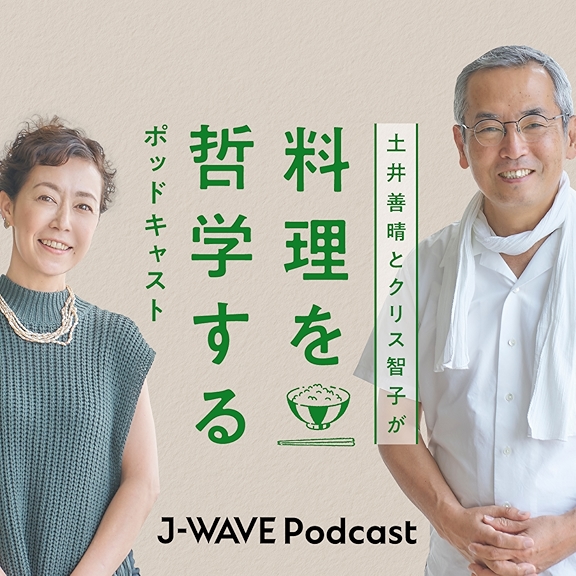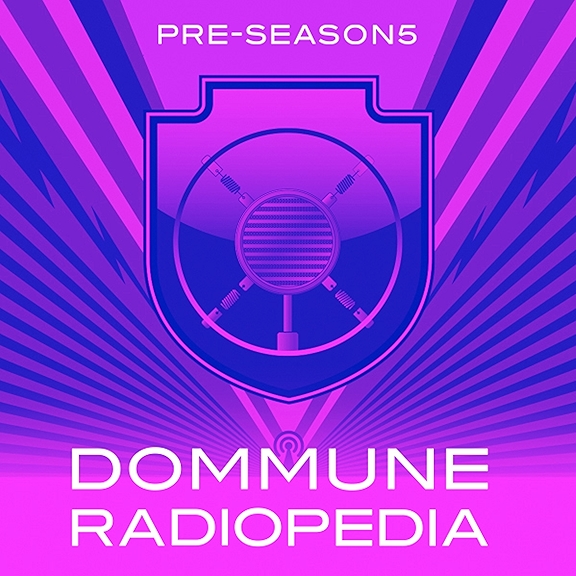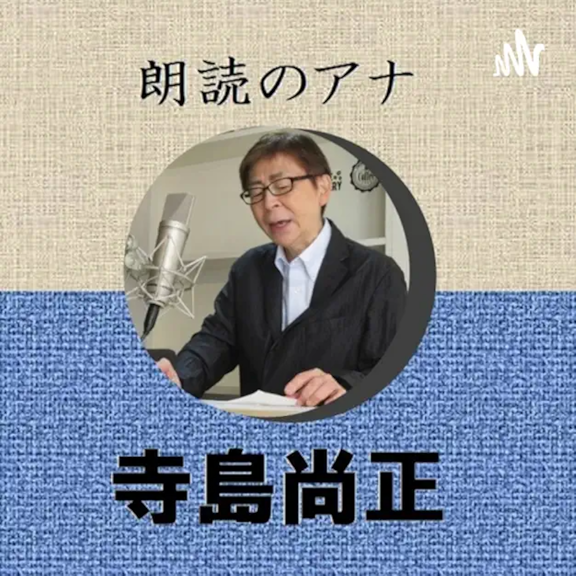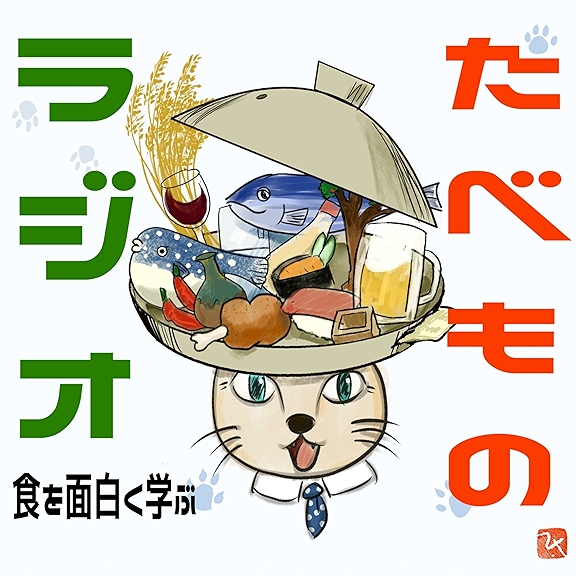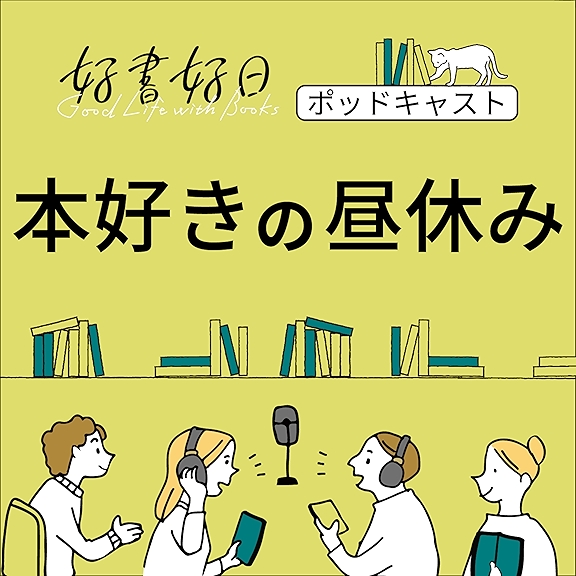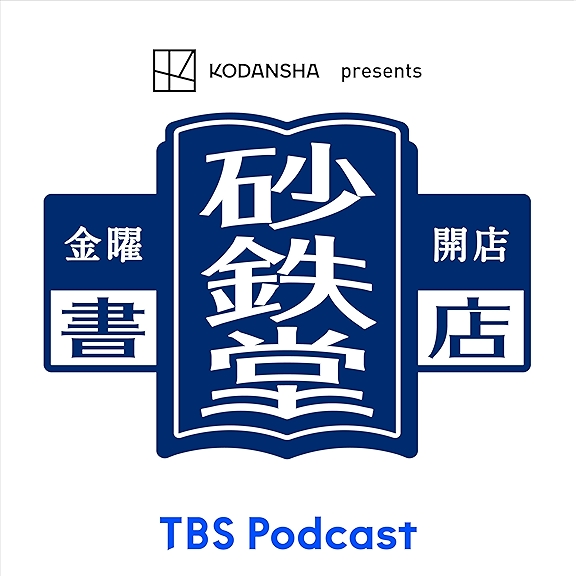
Episode 49 - Creating Fintastic Anthologies with Julia Rios
Back the Mermaids Monthly Kickstarter!
We Make Books is hosted by Rekka Jay and Kaelyn Considine; Rekka is a published author and Kaelyn is an editor and together they are going to take you through what goes into getting a book out of your head, on to paper, in to the hands of a publisher, and finally on to book store shelves.
We Make Books is a podcast for writers and publishers, by writers and publishers and we want to hear from our listeners! Send us your questions, comments, and concerns!
We hope you enjoy We Make Books!
Twitter: @WMBCast | @KindofKaelyn | @BittyBittyZap
Julia's Links:
Their Website: juliarios.com
Back the Mermaids Monthly Kickstarter!
Episode Transcript (created by Rekka, blame her for any errors)
Rekka (00:00:00): Welcome back to another episode of We Make Books, a podcast about writing, publishing, and everything in between. I'm Rekka. I write science fiction and fantasy as RJ Theodore.
Kaelyn (00:00:09): I'm Kaelyn Considine. I am the acquisitions editor for Parvus Press.
Rekka (00:00:13): And this episode is a little light on the Kaelyn this week.
Kaelyn (00:00:18): Yeah. we had this this great interview set up with Julia Rios and I missed it because I I ended up in the hospital the day before we were supposed to record the interview and that's Um interviews are a lot of fun, but unfortunately it's different than when it's just Rekka and I recording and she can say, okay, well just do this when you get home. So I I felt bad, I had to, didn't give Rekka that much notice she had to fly solo on this one.
Rekka (00:00:47): Yeah, it worked out okay. Julia is a great person. Julia Rios is a queer Latinx writer, editor, podcaster, and narrator whose fiction, non-fiction, and poetry have appeared in Latin American Literature Today, Lightspeed and Goblin Fruit, among other places. Their editing work has won multiple awards, including the Hugo award. Julia is a co-host of This Is Why We're Like This, a podcast about the movies we watch in childhood that shape our lives, for better or for worse. They're also one of several co-hosts for the Skiffy and Fanty Show, a general SF discussion podcast, and they've narrated the stories for Escape Pod, PodCastle, Pseudopod, and Cast of Wonders. And it was the editing work that had us reach out to Julia this time specifically editing anthologies, which Kaelyn brought to me as a concept for an episode. And I was like, "Hey, we can bring someone else on. Cause you said you wanted to do more interviews."
Kaelyn (00:01:38): Yeah. And we got this one lined up and then I missed it. Yeah.
Rekka (00:01:43): Well at least I had someone to talk to. It could have been a rambly, messy, nothing, if it'd just been me.
Kaelyn (00:01:50): Yeah. So anthologies are you know, something that I think a lot of writers see constantly, especially if you're active in social media, there's something that you're just constantly coming across, but they're a different kind of intimidating than a regular novel or short story submission. It's a different process. So I thought doing an episodeum it's actually gonna be two episodes now—on anthologies would be a nice topic to cover. So it was, you know, I, I wasn't on this episode, but I will say it was great that someone could come on and talk to us about this that actually has experience doing this.
Rekka (00:02:31): And then I threw Kaelyn the rough cut so she could listen while she was in the hospital to see if she wanted to have another conversation, if I covered everything or—and obviously I failed because we're going to talk about it one more time.
Kaelyn (00:02:42): Oh no, no, we're gonna, we're gonna talk about some different some different stuff. I can't, I can't let you have all of the fun with the anthropologies without me,
Rekka (00:02:50): Julia. The reason that I reached out to them this time was because, well, I've always wanted to have them on the podcast—cause you know, in your mind, when you have a podcast, there's always a list of people you want to talk to. So this one got me the chance to shoot Julia up to the head of the line because Julia is currently, right this very minute, get excited, running a Kickstarter to support basically a year long anthology. And the anthology is themed entirely around mermaids. And you'll get to hear Julia's explanation of why that happened that way in the episode. So I won't go too far into it.
Kaelyn (00:03:27): As if you need an explanation for mermaids.
Rekka (00:03:30): Julia provides an excuse to write your mermaid story, the mermaid story of your heart, and then send it to them. So of course, first they need their Kickstarter campaign to be successful. So make sure that while you're listening to this episode, you also go to MermaidsMonthly.com and that will lead you to the Kickstarter page. So you can back that act fast, because. Yeah.
Kaelyn (00:03:53): Yeah. I was going to say, when does the Kickstarter end?
Rekka (00:03:56): The Kickstarter ends on December 12th. So act fast. You have the rest of the week, if you're listening to this on, you know, the week it comes out. And if you are catching up after the fact, cross your fingers and go check that URL and we'll see, we'll see what happens.
Kaelyn (00:04:14): This is actually an excellent reminder for me, because I haven't gone to the Kickstarter yet. So—
Rekka (00:04:18): [GASP].
Kaelyn (00:04:18): I know.
Rekka (00:04:19): Go to the Kickstarter, Kaelyn!
Kaelyn (00:04:22): I was in the hospital!
Rekka (00:04:22): What! That's no excuse. You had plenty of free time just sitting in that room by yourself.
Kaelyn (00:04:25): Yeah, but, like, you know what hospital wi-fi is like.
Rekka (00:04:28): Yeah, I do. Okay. Sorry. So so yes, everyone, including Kaelyn immediately, while you listen to the music.
Kaelyn (00:04:35): I'm actually going to just drop off this intro right now, so I can go over there and check out the kickstarter.
Rekka (00:04:40): Good. All right. So while we listen to the music, go to MermaidsMonthly.com support this anthology because as you're about to hear it is extremely cool and extremely well-conceived. And it is in the hands of an excellent editor who has put together a team of people that they know can, you know, pull all this off and do it in a really, really cool way. So here comes the music. Here comes Julia Rios, and you are already at Kickstarter. I know it, so good for you back that shit and let's let's see this happen.
Rekka (00:05:28): Okay, I am here today with Julia Rios, who is a personal acquaintance of mine. I would go so far as to say friend, and it's good to have you on the podcast, finally. I was searching for an excuse honestly, to invite you on. And then Kaelyn came up with this idea of, "Hey, let's talk about anthologies because they are a beast of their own when it comes to pretty much every aspect of them." So I said, "Hey, speaking of themed collections of writing, you know, I know somebody who might want to talk about that right now." So why don't I have you introduce yourself? You know, we gave your, your formal bio in the intro, but you know, what's, what's on your mind these days and and where is it taking you?
Julia Rios (00:06:18): Right. Well, I think so talking about the theme of anthologies, I am a writer, editor, podcaster, and narrator. So I've done lots of different things in different ways. And I have edited anthologies in the past. I edited, Kaleidoscope: Diverse YA Science Fiction and Fantasy Stories. And then I did anthology editing for three different years, best YA volumes. So those were reprint anthologies, which is also yet another different beast than themed anthologies that are original stories. And now I am working on a project called Mermaids Monthly, which is technically a magazine, but it's more of an anthology project in that it's only running for one year and probably there's gonna be a book at the end of it, collecting all the contents. It's very themed. It's not a general call. So it's, it's even more highly themed than for instance, Kaleidoscope Diverse YA.
Julia Rios (00:07:11): Cause that was basically any science fiction and fantasy. That was YA as long as the protagonist came from a background that wasn't the default straight, Cis, white, et cetera. I also did edit, I was a guest editor for the Cast of Wonders, which is a podcast, why a magazine sort of thing. But every year they do a banned books week episode, or series of episodes. So it's for the full week. And that's basically an anthology editing gig as well, where you're editing, you're selecting stories based on the theme that are, in the case of the one that I edited, it was censorship turns out the lights, like let's, let's turn the lights on and see what happens. And so it was very much like, "okay, tell me for banned books weeks, what stories you have that are science fiction and fantasy that have to do with censorship and with like subverting censorship." So that's, that's the kind of different areas of, of podcast and magazine and book anthology editing that I have done or that I am currently doing. All of them were different formats because when you're doing it for a book it's different than when you're doing it for audio and it's different than when you're doing it for something that's going to be serialized.
Rekka (00:08:35): Right. Right. And the difference between just the, like the nuance between those three different that you listed is even more than I was thinking about, you know, because— as soon as I invited you on it, it was like, you were going to talk about mermaids. This is gonna be so cool. And and I'm thinking about like the specificity of a magazine about mermaids and you're right. Like an anthology that has a theme can still be a very broad theme where that's open to a lot of interpretation. And I would imagine that you'd even invite people to open "mermaids" to a lot of interpretation, but it's like if I was going to, and I, and I don't mean this to like downplay the mermaid theme because there's, there's a lot of cultural and historical, you know, genre kind of stuff going on with mermaids. But like if I had an anthology, where I was like, "every story has to have an apple pie in it," you know, like that could be really, really broad if, as long as there's an apple pie in it, it can be about anything you want, you know? But would you say that, and we'll get more into the Mermaids Monthly specifically later, but like, are you, are you looking for like, no, I want to center the mermaid or you, you think you want, like, "I don't know. What does mermaid make you want to write?"
Julia Rios (00:09:58): Yeah. Okay. So this is something that we've talked about a lot. So I'm working on mermaids monthly with Meg Frank, who is an artist and also has a background in marketing.
Rekka (00:10:06): And may or may not be a mermaid themselves.
Julia Rios (00:10:09): Yeah. They may be a mermaid, it's entirely possible. So we've, we've kind of conceived this as what I originally, my first idea, this, the whole reason Mermaids Monthly exists is because I've been editing professionally for, I think eight years now, seven years now, some long time anyway. And many times when I'm on panels at conventions, or if I'm teaching a class, people will ask me, "Do editors really have to reject stories they actually like? Does that ever actually happen?" Because I think people tell writers like, "don't feel bad. It doesn't mean your story isn't good." And then writers are like, "well then why would you possibly reject a story that is good?"
Rekka (00:10:49): Right.
Julia Rios (00:10:50): And it does happen. It happens so often. And it's, it's heartbreaking because as an editor, you don't want to have to reject stories that are good. And also like, as an editor, I know. I'm also a writer. I know how awful it is to be rejected. I don't want to have to tell people like, "Hey, I know you spent a huge amount of time and poured your soul into writing this thing, but guess what? I'm not gonna take it."
Rekka (00:11:13): Yeah.
Julia Rios (00:11:14): But that's part of the job. So it's an unfortunate side effect of the cool things that you get to do. But one of the reasons why stories that are good can get rejected, and it's not the only reason, is that if you're editing something for a non-themed thing, if you're like a general magazine or a general arm of a publishing company that is not specifically highly themed, you can take one item that is similar. So you could take like one mermaid story and that's fine. You can maybe take two and get away with it. The second you take three of those things, you run the risk of becoming "that mermaid magazine."
Rekka (00:11:56): Right.
Julia Rios (00:11:58): Or like "that imprint that only publishes mermaid books."
Rekka (00:12:02): Hey, you know, some people want that, but it does. There are reasons why publishers don't want to do that.
Julia Rios (00:12:08): Like there are some places where that's that's appropriate. This is fine. I would always like end this with, "this is fine if you're Mermaids Monthly, but it's not so great if you're Strange Horizons," which has no stated theme except for science fiction and fantasy.
Rekka (00:12:23): Right.
Julia Rios (00:12:23): And it's like, "I'm not Mermaids Monthly. So I can't take more than a couple mermaid stories."
Rekka (00:12:29): Unless...
Julia Rios (00:12:29): "Unless, what if I am Mermaids Monthly and I can, and all I do is mermaids for awhile?" So I originally thought I was just going to do some, you know, take, take stories for a while and do one year of mermaids. And then when I brought it up with Meg, we started talking and, and what grew out of this was something bigger and more visual than I was originally expecting because Meg's background is in art and that there is so much cool mermaid art. So we're going to have comics, we're going to have illustrations, we're going to have all kinds of little visual cues that are mermaid involved as well. And that's different from most of the other end biologies that I've done, because most of the other ones that I've done, haven't had illustrations. They have like cover art and that's it.
Rekka (00:13:16): Yeah, yeah. Even, even some of the magazines that go further with artwork still have like a full bleed illustration that either separate sections or just, you know, is for the titles that they think are going to be the most impactful.
Julia Rios (00:13:35): Yeah. Yeah. And I think that this is going to be much more integrated. We have one bonus issue that's already come out. And so you can kind of get a sense of it because it has one comic and it has a few poems and Meg has done some sort of interstitial art bits. So you can see that it sort of does incorporate that visual art element all throughout, which is great because mermaids is such a visual theme and like under sea life. So that's very cool, and that's one of the things that I've been thinking about, like how, how different this will be is that it really does then affect everything. When we made our submissions guidelines, I realized like we were going to have separate art and prose guidelines. And we realized that we couldn't do that because, because it was also intertwined, we just needed everybody to send us stuff at the same time so that we could consider all of it together.
Rekka (00:14:24): And so that's one thing, you know, stepping back from the specific anthology or, you know, anthology year of magazine— it needs its own name because you're doing so many really cool things with it that like, it, it doesn't, it's not fair to call it either magazine or anthology.
Julia Rios (00:14:43): I do think it's fair to call it anthology. When you think about the idea of a TV series can be an anthology. You can have a collection of, for instance, like Amazing Stories or the Twilight Zone is considered an anthology.
Rekka (00:14:56): Right.
Julia Rios (00:14:57): All it means is that you're collecting things of a similar type that aren't necessarily individually related to each other, but are related to a larger theme.
Rekka (00:15:05): Right. So when you are the editor for an anthology, you're not always going to be completely autonomous with regard to the project itself. So I'm wondering how, as you see the submissions come in and you may also not get to be the art director on the artwork for them. So this is, this is very different from what you're working on, which is so exciting. (I'm, I'm going to say that like, over and over and over during this episode.) But you do have control, usually, over the stories that you accept. So what kinda goes through your mind as you create a call for an anthology, and then, you know, the world being what it is, you might get stories that have nothing to do with what you were anticipating getting. How do you like assemble these? Like what goes through your mind as you assemble these things into a single work, that's going to have your name on it?
Julia Rios (00:16:13): That's a really great question. And I think that one of the things that has been true for me is that when I'm doing something for a theme and I'm thinking about it something that might happen is I get something that I love that is a surprise to me that I wouldn't have thought of myself, and that can become sort of a pillar and, together with a few other things, they can kind of hold together the theme and be sort of like different poles—if you imagine the whole theme is like a tent and they have different poles at different points. And then the overall thing kind of like folds over everything and drapes there. And I think that what I usually find when I'm coming to coming up with an anthology type thing, is that I know I have a set length that I'm ultimately aiming at. So I know that there has to be a balance within that length and that if I get a few things that are different from each other, or a few things that are very similar to each other that are going to be the tent poles that hold it up, then I can kind of build around that to create the balance based on those things.
Rekka (00:17:24): Okay. Okay. That's interesting. So when you say you're limited to a length, we're talking about like the total word count because the authors are being paid per word, and there's a budget for what the content is going to cost.
Julia Rios (00:17:37): Yeah. And it's not just because of that. It can be because of a budget, but it can also be because that's the length, the physical length of a physical book, that you want to in someone's hands. Cause like if you buy 200,000 words, it's going to be a much thicker, heavier book.
Rekka (00:17:56): Yeah.
Julia Rios (00:17:57): Than if you buy 100,000 words.
Rekka (00:17:59): Absolutely. Yeah. I mean, at 100,000 words, you're wondering how you're going to fit everything on the spine. At 200,000 words, you're like, "should I throw some illustrations on the spine? This thing is enormous. What do I do with all this space? Maybe I'll put a recipe here. I don't know." yeah. So when, so when you, aren't the conceptual, you know, creator of the anthology, like if someone says, I want to have an anthology based on this topic, but I want to find an editor that is going to do it justice, and I decide that's not me. How do you work with the person who brings you the anthology?
Julia Rios (00:18:39): That's interesting. So I think that anytime I've been hired by someone else to do an anthology, either I've worked with them... So in the case of Kaleidoscope, my co-editor was the publisher, Alisa Krasnostein. Alisa Krasnostein is an Australian publisher of a small press called 12th Planet Press. And basically she heard me on a recording of a panel that I had been on at WisCon about dystopian YA and like how heteronormative it is. And she was like, "would you like to work with me? And we could do an anthology of like dystopian YA." And that was her original pitch. And I was like, "I would love to work with you. This sounds fun. I think we should make it not limited to queer or dystopian." And so like, then we ended up with this idea of like diverse YA science fiction and fantasy. So it was a very broad thing, which meant that... I realized at that point that if we were going to do a very, very narrow theme, that it would end up feeling, to me, like a lot of the same story over and over again, queer YA dystopian is a very narrow theme. And I like to kind of play around a little bit more. So we talked to each other until we kind of came up with something that worked for both of us. And she got really excited about, you know, including other kinds of diversity as well, and including other kinds of stories. And we came up with an anthology that was a really lovely anthology with a lot of great stories and that were all very different and that was okay, because they could be very different and still fit with the broader theme.
Julia Rios (00:20:14): So that's one example of what happened was, basically I talked with the person and was co-editing, but in another instance, like for instance when I did the banned books week for Cast Of Wonders, they, they know that they want to do a banned books week showcase every year, and they usually get someone to guest edit it. So they asked me if I would like to be that editor. And they told me what they generally wanted, which was, it has to fit with this "censorship turns out the lights leaves us in the dark let's turn on the lights." And then they said, "basically, you know, here's the budget that you have, you make it work." And so I'm like, you know, they were like, "we want at least X amount of episodes. So it has to be a mixture of like short stories and flash and whatever, but like here, here, you can have this submissions pile and you can do what you want with it."
Julia Rios (00:21:09): And I did have access to their first reader team and I did actually talk to their first readers. So if their first readers really loved something, I would take that into account. And I think that's generally my experience, anytime I'm editing with a team, I will definitely talk to other members of the team, and if something hasn't grabbed me on first read, but it's really grabbed some other people, I'll then take more time to consider it cause, obviously things work differently for different people, and just because something hasn't grabbed me right off the bat, it doesn't mean that it's not a beautiful story that I will ultimately love to publish.
Rekka (00:21:45): Right. Right. Yeah. And you can get to know the story as you work with the author and, you know, appreciate more about it.
Julia Rios (00:21:52): Yeah. And just having the chance to ask the other readers, like, "why did this resonate with you?" can kind of also open up different aspects of it.
Rekka (00:22:00): Right. Because as you're reading through a slush pile, I imagine there's a pressure to just respond to every one of them as quickly as possible, you know, to be fair that there's the, "I know what I'm looking for this, isn't it" kind of, you know, and then maybe you get through the entire pile and you realize what you thought you wanted wasn't in there, but now you have this sense that there was something else in there that you, you know, that was forming that you didn't realize until you get to the end of it or something. How is that slush pile experience with you as like the lead editor? I mean, I know you said you worked with the first readers, but what does that actually look like? Cause I'm not sure that everybody really understands how that process works.
Julia Rios (00:22:45): Okay. So usually in places where there are where there's a team of first readers, basically all the slush comes in and sometimes, depending on the place the main editor won't read any of the slush that hasn't been filtered. Sometimes everybody is kind of like picking stuff out of the pile and reading it and then setting aside the ones that they like to show people later. Usually there's like a first pass that happens when I do these things where it's like, yeah, that first pass is reading things and setting the things that look good aside and setting the things that I automatically know, like maybe they aren't for the theme or maybe it just didn't grab me. It wasn't something that I felt was ready. It, whatever, whatever reason, maybe it's actually a graciously offensive, that happens sometimes. Those things will get like set aside to be rejected right away.
Julia Rios (00:23:41): And then you'll go and do more passes, then with each pass. You're kind of your goal is to cut it down further because ultimately, you know, you're going to want a very small percentage of that stack. And then finally, after that, so if the first readers have been doing it, they'll be passing things up and I'll be reading them after they pass them up. Maybe I won't read them until we get to a second round. So anybody who has been pulled out by a first reader might get a second round notice that says like, "Hey your story made it past the first round, but you've gotta wait longer, sorry."
Rekka (00:24:15): Good news, bad news.
Julia Rios (00:24:17): Yeah. And sometimes those stories are stories that I read and set aside. So I'm sending the story and being like, like basically if you get that notice somebody loved your story. They loved your story enough that they were like, "this is worth looking at more carefully and seeing if it fits the overall balance."
Rekka (00:24:33): Yeah.
Julia Rios (00:24:33): And then, like I said, usually what happens for me is I'll find one or two things that I'm like, "I know for sure this thing is definitely in." So then it's like, "how do the other things match against it?" And I think with that one in specific, like I had asked a couple of people to submit things and knew that those would be in the pile, but also didn't know which ones they were, because the way Cast of Wonders does reading, they make it so that you can't see who the author is when you're first reading it.
Rekka (00:25:08): Right.
Julia Rios (00:25:08): So Anonymous, Anonymous Submissions from the point of view of the reading team.
Rekka (00:25:14): Right.
Julia Rios (00:25:14): And that was really interesting to me because I knew like one of the stories that I had asked a specific author that I really like, I was like, "could you please submit something? Cause I know you'll write something good for this." And I knew it was their story, even though I didn't know what they were going to send. And I didn't know whose name was on the thing I, reading it, I was like, "this is this author. And I already know I want it."
Rekka (00:25:37): Yeah. That's very cool. So on that note, a lot of anthologies will solicit work. Especially for instance, if this anthology, you know, this hypothetical anthology is being funded through Kickstarter there's a tendency to say, "and we will have these names that you already know" so that people back it because they're, you know, familiar or a fan of with or of the author names that they recognize. So when, when do you get to say like tap someone that "you know, you love their work and say, I want you to write me something." And when do you only get to say, "could you submit something please? So I can consider it?" Or is that a personal decision? Like, "I don't know for sure that this is up your alley, but I want to invite you to participate because I believe you would do well" versus like, "no, I guarantee you you're in it if you write me a story" and is that guaranteed?
Julia Rios (00:26:34): So that depends a lot on the context. And for me, if I'm doing an anthology and I ask someone to please submit something, usually usually I'm asking them, knowing that I would accept what they would write. So in the case of Mermaids Monthly, for instance, for the Kickstarter, we have a list of contributors and those are all people that I've worked with before, or have high confidence in the stuff that I've read of theirs. And we know that they are willing to do something. We ask them ahead of time, "Would you be willing to write something?" We believe they will turn the thing in. If they turn something in, we will absolutely plan to take it. The only way we wouldn't is if somehow, like they didn't have time, some life emergency came up, or I don't know, somehow it turned out that someone I'd asked had secretly been a horrible racist and wrote— like in that case, yeah. I'm not going to accept it, but I'm only going to ask people that I would never imagine would do that.
Rekka (00:27:37): Right. Of course.
Julia Rios (00:27:39): We had, I think, 30 names in our contributors before we—
Rekka (00:27:43): Yeah that was the last count I saw.
Julia Rios (00:27:47): Yeah. And the reason why was because we know all of the formats that we're doing involve a lot of like smaller things. So we were able to do that many names and still know that we'll be able to take like as many people again from the slush.
Julia Rios (00:28:00): Yeah. Yeah, I had to remind myself like, "Oh yeah, this is running all year 30 names doesn't mean it's already full."
Julia Rios (00:28:06): Well, it's also like, "are those 30 people all turning in a long story?" No, some of them are doing illustrations. Some of them are doing like flash pieces that we specifically asked for or poems that we specifically asked for. So it depends. And, and what you're asking people to do will depend as well. But for that, I definitely can make that call. For the Cast of Wonders one, I couldn't just solicit something and say, for sure, "I know I want you to write this and I will absolutely take it," because I knew that the process for choosing those was going to be the process that they already had in place.
Rekka (00:28:42): Right.
Julia Rios (00:28:42): Which is you get Anonymous Submissions, you read those, and then the team kind of makes a decision.
Rekka (00:28:49): And in your case, you were lucky that this person was recognizable.
Julia Rios (00:28:52): I told that person, like, "I'd really love you to submit something. Cause I know you write, well, I can't guarantee anything." And I will tell— I'll be very transparent with people ahead of time about whether or not I can guarantee or not guarantee something. But for all the people that have already asked for Mermaids Monthly, I specifically like said, "I would like you to do X thing. Would you do X thing? If you do it, I will put it in this magazine as long as it funds."
Julia Rios (00:29:17): Yeah. And do you ask them to shoot then for a word count goal?
Julia Rios (00:29:22): Yeah. I do. So I've— some of the people I've asked for specific word counts of stories. Whether it's a flash piece or it's a short story, some people I've said like, "you can go right up to the limit," some people I've said, "Hey, I'm looking for something that's like two to three thousand words." I've asked some people for poetry, I've asked some people for illustrations and comics. It just kind of depends. And with the illustrations and things like that, it's like, there's a difference between whether we've asked someone to do an interior spot illustration or a cover, which the covers are going to be way more expensive.
Rekka (00:29:59): Right. The covers are more expensive. They take up an entire page and you've got to account for that when you're planning your books and your layout, the spot illustrations might be resizable depending on how the the resolution and how they flow with the words around them, that kind of thing. That's and that's so neat. I love the, the mix of art that you're going to have in this. I'm excited to see how that turns out. So when you are then considering story lengths, do you get excited looking through the slush pile when you find like lots of flash, does that make you go, "Ooh, I can buy lots of stories."
Julia Rios (00:30:35): Yeah.
Rekka (00:30:35): Or is it really a matter of how the, the themes fit in?
Julia Rios (00:30:39): I love flash. I think flash is harder to do than a lot of people realize. I love it when it works. Well, I think that flash stories are such a great little break. Like it's a little hit. So if you only have a five minute break to do something and you want to just read a story during those five minutes, flash is such a great little thing to do, and a good flash story can leave you laughing, or it can give you an emotional gut punch, or you can just come out of it being like, "Whoa, I had this thought that I never had before" and you never know what you're going to get. So I really do love it when it works well. I also do think it's really hard to pull off. So I love it when people submit it and, like every other story it's still a hard sell, but statistically, because we can buy more of them, because they will fit more in the space that we have and with the budget we have, you're more likely to get an acceptance with flash.
Rekka (00:31:38): Right. It does seem like, okay, everybody, that's your hint, that's your little trick. Cause otherwise of course, everyone's going to say, "how do I get my story accepted?" And we're still talking generally here. I haven't even gotten to the mermaid stuff, but like generally, what would be your advice for someone who says like, "I want to write short fiction and I want to sell it to markets or sell it to anthologies." because especially with anthologies, generally, there's kind of a small window of the submissions. So unless someone's got something in their back pocket that's perfect for that anthology that they've been workshopping and they've been editing and they've been revising and had beta readers and, and they've, you know, been staring at for 10 years or something. There... What you're going to see is generally like maybe a second or third draft, if you're lucky. Right? So what do you what would you say to somebody who's looking at anthologies, looking at the short window from finding out what it's even about to having to submit their story? How did, how do you approach that as a writer or how would you tell a writer to approach?
Julia Rios (00:32:45): Well, I mean, I've approached it as a writer myself. Because I, so I also have we didn't talk about this at all, but I've also written stories that have been in anthologies. So I've done a couple of stories that have been in A Larger Reality I and II, which were Mexican and Mexican American anthology of writers that were collecting stories—I think there was one comic in the first one and the second one was all very tiny flash pieces that were up to 300 words—and then also like art. That one was mostly online. The first one was actually a physical book and also an ebook. And these were made by Libia Brenda, who is the person, I think now she's doing some editing for Constelación Magazine. I met her through the Mexicanx initiative, which brought 50 Mexicanx creators to World Con in 2018.
Julia Rios (00:33:39): And she then later became the first Mexican woman to be nominated for a Hugo award, which is awesome. And that was because of her involvement with A Larger Reality. But for that, like she basically reached out to all of us, all 50 of us and said, "does anyone want to make an anthology that we can hand out to people at WorldCon so that we can show them what Mexican writers do?" And she was sort of expecting people to not really be that excited about it because it was going to be free, but she was like, "I will just make it, it'll be fine." And all of us were like, "yes, this sounds like a great idea. Let's do it." So we ultimately did and we made a Kickstarter for it. Even though like we'd given her all the, all the stuff, but we did a Kickstarter just to raise the funds to cover the printing costs. And then also overfunded enough that we could pay all the authors, which was great.
Rekka (00:34:28): Oh, that's very cool.
Julia Rios (00:34:30): But for that one, it was basically like I had a period of a couple of months." And she said, "you know, if you have something already, it doesn't have to be a new thing, it can be a reprint". But most of us ended up writing new stories and I wrote a new story for that one. And that one, it was like, okay, I know I have a couple of months and I know this is going to go to like anybody who attends WorldCon and the goal of it is to try to show what kinds of stories Mexican creators make."
Rekka (00:34:54): Right.
Julia Rios (00:34:55): So I was like, "I want this to show something that has to do with my feeling as a Mexican person."
Rekka (00:35:02): In 300 words or less!
Julia Rios (00:35:04): Well the first one was not, it was not limited to that.
Julia Rios (00:35:08): Oh okay. All right. I was thinking, "wow!"
Julia Rios (00:35:09): I think the first one had like a 5,000 word sort of guideline limit. And I think mine was like two to three thousand. I can't remember exactly how long.
Rekka (00:35:18): I was going to say, to introduce yourself to the WorldCon audience, and you have 300 words. Do your, do your whole culture proud.
Julia Rios (00:35:27): So yeah, so that one I really wanted to, I didn't have to, like, no one told me I had to, but I wanted to do something that kind of touched on my identity as a Mexican person and also as a queer person, because those are two parts of me and I feel like the, the ways they intersect are important. And I wanted to show that like, no one is one thing, no one is all one thing. And so I ended up writing this story that had to do with a woman who is kind of jumping from dimension to dimension and trying to fix a relationship problem basically. But she's running into the same people and she's seeing how she's connected to them in different dimensions. And one of the things that comes through in that is that basically all of these people are, they're different instances of themselves, but there's something intrinsic to them that makes them them and these aspects of their identity are still really strong. And for me, like that was, that was something I thought about. And I was like, "I think I'm thinking about this because I'm thinking about how this anthology reflects specifically my identity." And even though this, this person is not me, and this is not


